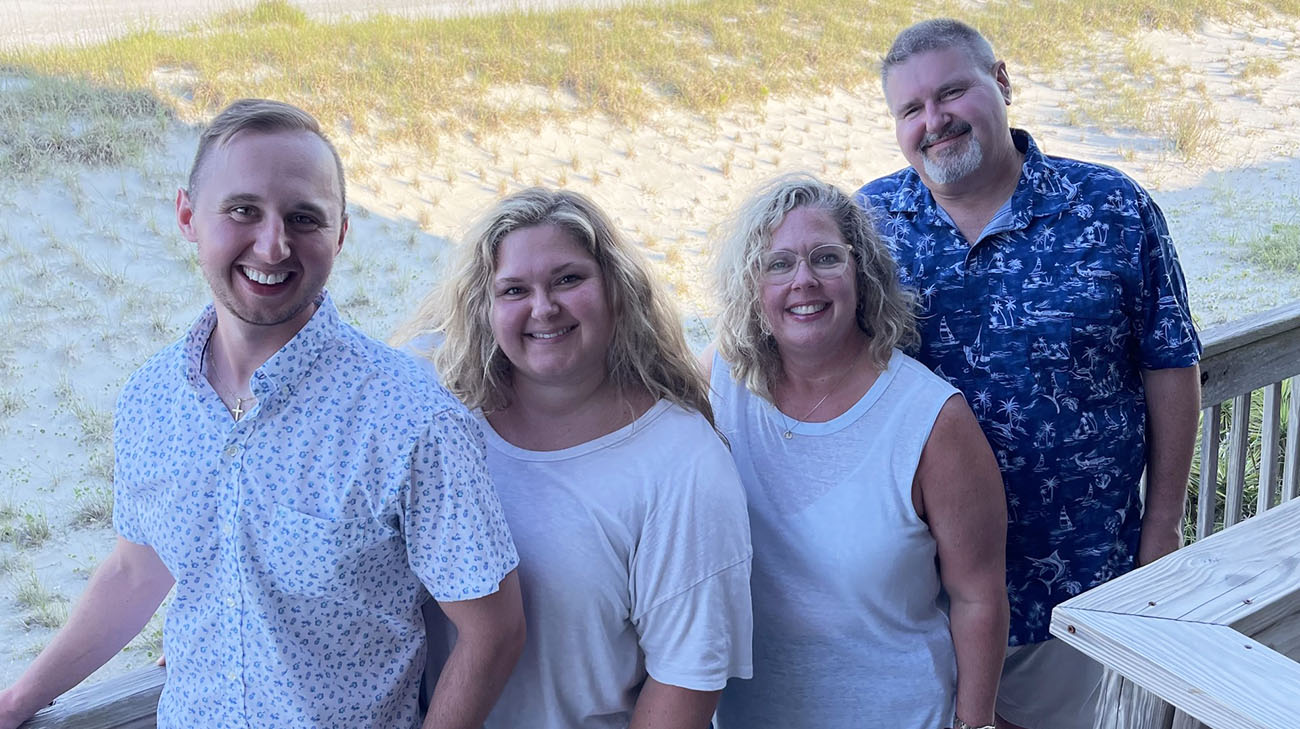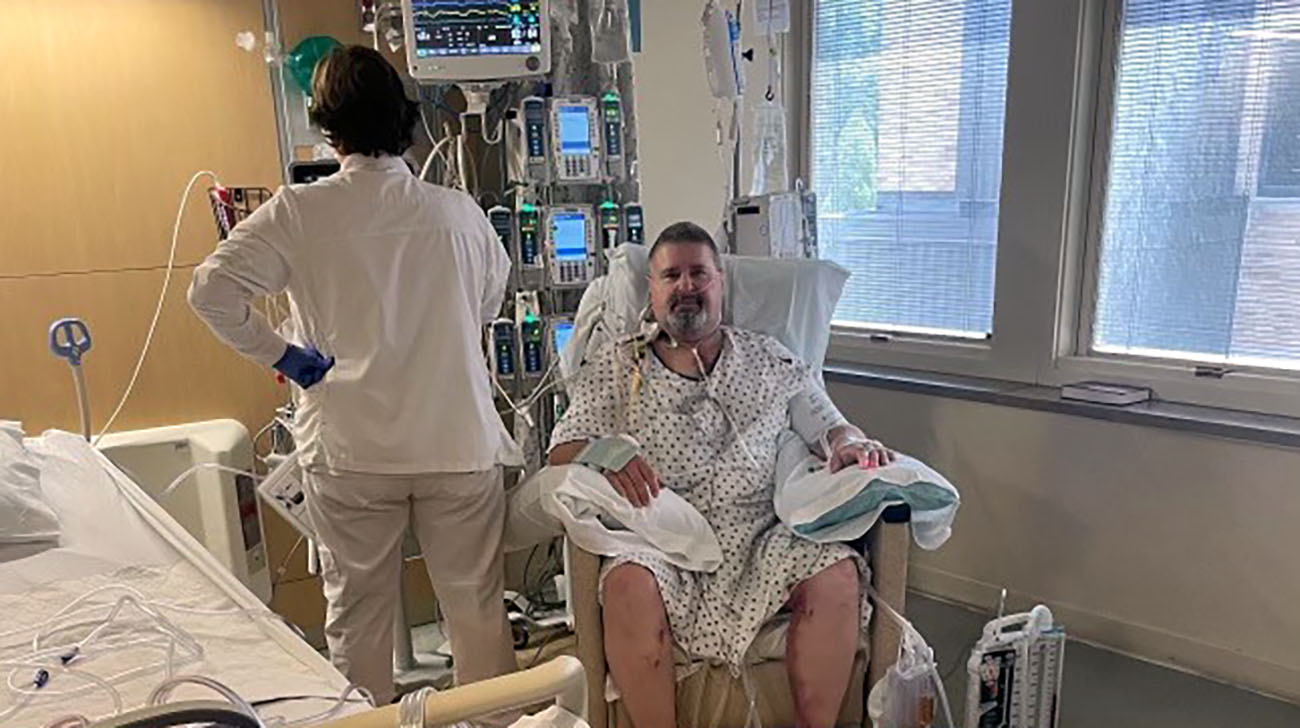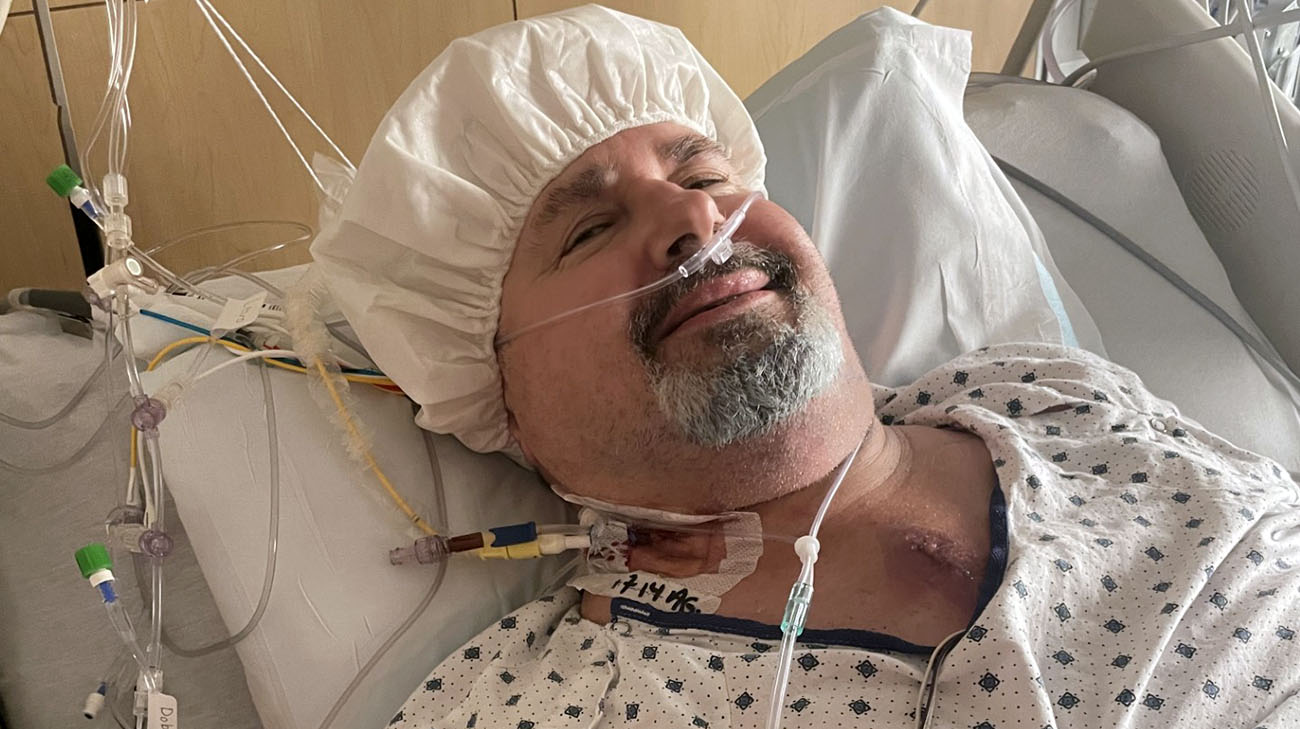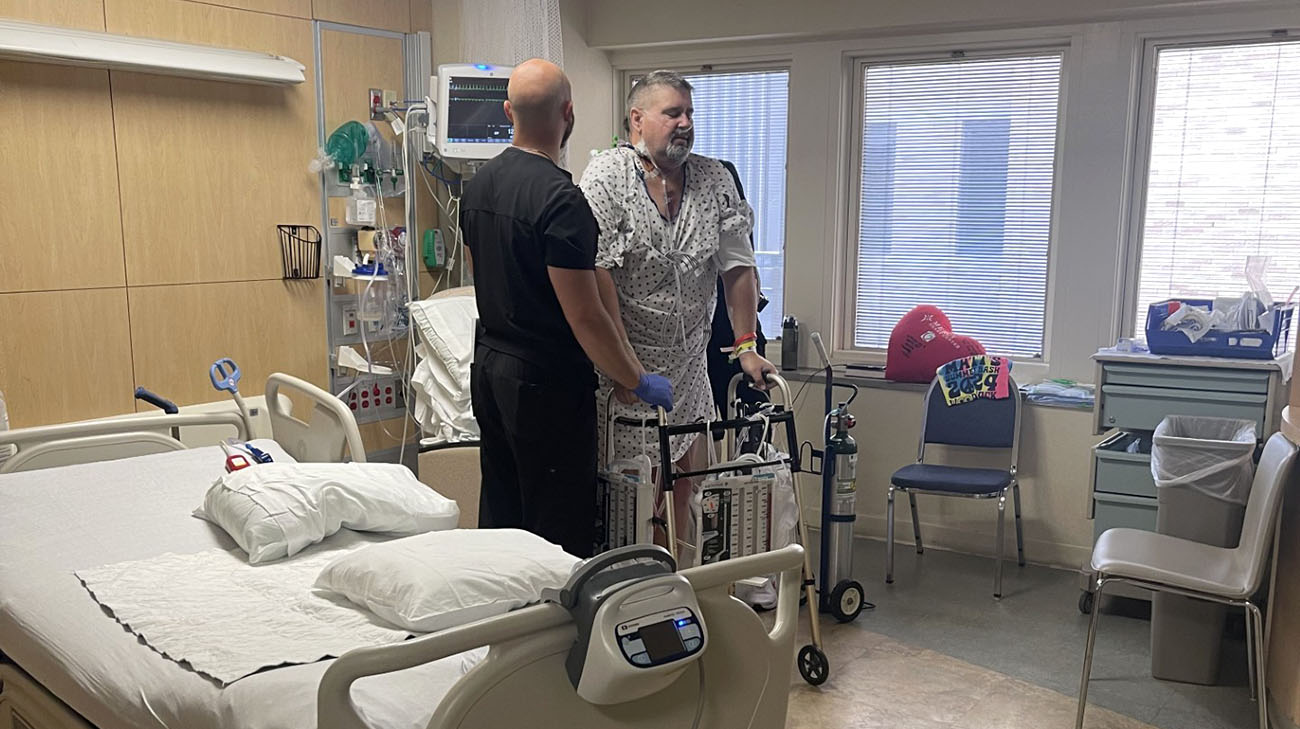
Although he’s been a smoker for four decades, Ernie Dominik, age 55, still paid close attention to his health. With a family history of heart disease (his siblings both have had cardiac procedures, and his father passed away from a heart attack), Ernie knew keeping regular appointments with his primary care physician (PCP) were essential.
“I knew smoking was not in my best interest and I had tried unsuccessfully to quit on multiple occasions,” says Ernie. “In addition to my PCP, I had also been seeing a cardiologist, but then he passed away and I never bothered to find a new one.”
Even though Ernie didn’t have any obvious cardiac symptoms like chest pain or shortness of breath, he did have a history of high cholesterol and high blood pressure that can be linked to a risk of cardiac disease. His PCP, recognizing the heightened risk associated with his smoking habit, recommended a comprehensive panel of tests that included lung scans, blood work and pulmonary function tests.
"He suggested the testing in 2022, but I procrastinated," Ernie confesses. "Finally, during my 2023 checkup, my doctor's insistence pushed me to take action."
The results of the tests were concerning enough that Ernie’s PCP referred him to a cardiologist for further testing. Ernie opted to see Dr. Sammi Dali, a cardiologist at Cleveland Clinic Mercy Hospital, close to where he lives (and where his wife has worked as an occupational therapist for 34 years).
“Ernie was referred to see me due to an abnormal CT screening for his lungs that suggested he had some plaque buildup in his coronary arteries,” says Dr. Dali. “He technically had all the risk factors for coronary artery disease but was not having specific symptoms or complaints.”
Secondary to the finding on the CT scan, Dr. Dali advised Ernie to have treadmill nuclear stress testing which came back significantly abnormal. “The results of that test, which also showed cardiomyopathy, was the reason we proceeded with more invasive testing (a cardiac catheterization),” says Dr. Dali.
“I’m a self-employed painter, and I also own a sports card shop,” says Ernie. “I had two card shows planned so I was anxious to get this procedure done so I could get on with my life.”
On July 10, Ernie underwent a heart catheterization at Mercy Hospital. Within 30 minutes, Dr. Dali came out to find Julie. "He told me Ernie's heart was in dire condition, with multiple blockages that would require open-heart surgery," Julie recalls. "Amidst my shock, Dr. Dali was incredibly compassionate, even offering to carry my bag as we went to see Ernie."
“Ernie’s heart showed more damage than what I was hoping to see in someone his age, and that’s why he was referred for open heart surgery,” says Dr. Dali.
Faced with this life-altering news, Ernie and Julie considered transferring to Cleveland Clinic’s main campus. "I asked Dr. Dali what he would do if it were his family member," Julie says. "He expressed his full trust in cardiothoracic surgeon Dr. Harry Kourlis, but said we needed to make a decision that felt right for us."
After meeting with Dr. Kourlis, Julie and Ernie knew they were in capable hands. “I asked him how many bypasses I needed, and he said not to worry about the number because it didn’t matter. He was very straightforward,” says Ernie. “He said he would take as long as he needed.”
On July 12, Ernie underwent a 10-hour quintuple coronary bypass surgery. He spent the next nine days recovering in the hospital.

“Bypass surgery has saved many lives and made many people live longer,” says Dr. Kourlis. “By using blood vessels (arteries and veins) from other parts of the body we form a new channel for blood to go around (bypass) the important blockages in the arteries on the surface of the heart. This establishes new blood flow to the starving muscle and improves a person’s quality of life and survival.”
Ernie’s first memory upon waking was being offered ice chips by his nurse. “It felt like a blessing from heaven because my throat was raw from the breathing tube,” he says. “I was helpless. I couldn’t do anything for myself, and the staff never made me feel like a burden. I always felt like I was their only patient even though I know I wasn’t.”

Following his hospital discharge, Ernie embarked on a rigorous cardiac rehabilitation program at Mercy. "They started me with basic cardio exercises, gradually increasing the intensity," he explains. "I set daily goals, pushing myself to break a sweat each session."
Probably the biggest lifestyle change for Ernie was quitting smoking. “Dr. Kourlis told me if I didn’t quit there would be detrimental consequences,” Ernie says. “I haven’t had a cigarette since July 9.”
According to Dr. Kourlis, while there are certain factors people can’t change about their bodies, like their age, there are lifestyle changes they can make that can significantly impact the health of the blood vessel bypass grafts, their long-term survival and post-surgery quality of life. “Quitting smoking, controlling diabetes and weight, exercising and being on the correct medicines are very important after cardiac surgery,” he says.
Ernie successfully completed cardiac rehab in December 2024, acknowledging the invaluable support of his wife and adult children throughout his journey. "I couldn't drive for four weeks," he says. "My son drove me to my card shop daily and my daughter was a constant source of help. This experience has taught me that you can’t take anything for granted, whether that’s your health or your family and friends.”

For Julie, watching the people she’s worked with for the past 34 years help take care of her husband only instilled even more pride in the place she works. Deeply moved by Ernie’s exceptional care, she felt inspired to write a letter to Mercy’s CEO, expressing her gratitude and highlighting her family’s positive experience with the hospital and its dedicated caregivers. “I am very proud to say that I work at Mercy,” she says. “Ernie is going to be alive for a lot longer because of the care he received here, and I am eternally grateful.”
Related Institutes: Heart, Vascular & Thoracic Institute (Miller Family)

